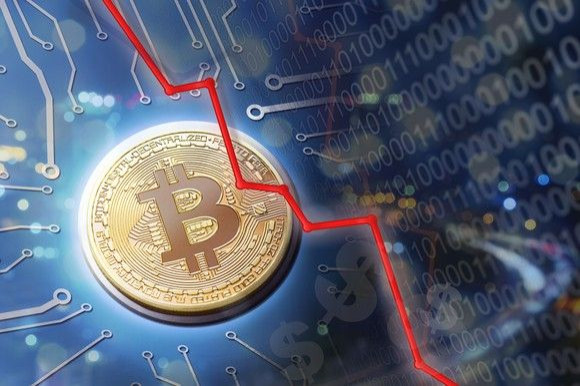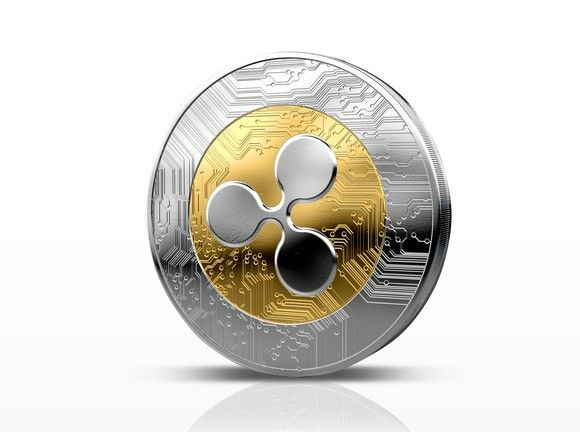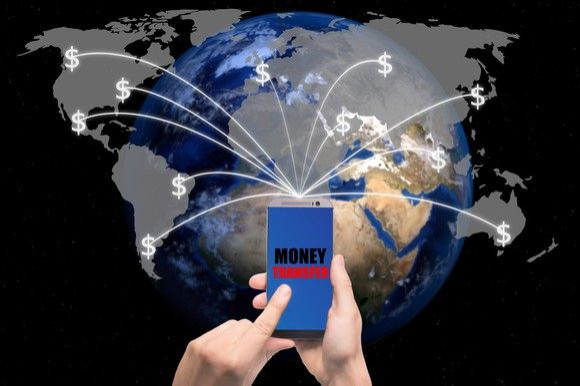Ripple Blockchain 2018: 5 Companies Testing The Technology

This article originally appeared in the Motley Fool.
Cryptocurrencies have had a rough month, but that doesn't erase what's been an incredible run since the beginning of 2017. Last year, the combined market value of all digital currencies roared higher to $613 billion after beginning the year under $18 billion. Yes, the addition of new virtual currencies through initial coin offerings did raise the aggregate market cap of cryptocurrencies, but the increase was primarily the result of existing virtual currencies that soared in value.
Ripple Makes Its Presence Known
While bitcoin is often credited as being the heart of this rally, last year predominantly belonged to other cryptocurrencies emerging from bitcoin's shadow. Perhaps none made its mark more than Ripple, which at one point in the first week of January climbed to a nearly $150 billion market cap. In 2017, Ripple's XRP coin gained more than 35,500% in value.

he allure of Ripple is the company's blockchain technology. Blockchain is like the infrastructure that virtual currencies are built upon. It's the digital, distributed, and decentralized ledger where all transactions of a particular cryptocurrency are recorded.
Blockchain's existence is a direct result of developers who saw flaws in the current banking network. These flaws include significant wait times for payments to settle, including multiday waits for cross-border transactions, as well as exorbitant transaction fees tied to banks that act as middlemen during transactions. Blockchain eliminates this middleman, and it constantly proofs transactions, with the goal of settling payments in a matter of seconds or minutes, as opposed to days.
Five Brand-Name Businesses Currently Testing Ripple's Technology
Not surprisingly, Ripple's blockchain and XRP token are being purposefully marketed at large financial institutions. To date, Ripple has five major companies testing its blockchain technology and/or XRP coin in some capacity.

1 And 2. American Express And Banco Santander
The first two, American Express (NYSE:AXP) and Spain's Banco Santander (NYSE:SAN) , go hand-in-hand because they're working together to test Ripple's blockchain on real-world cross-border payments.
Under the terms of the deal, announced in mid-November, American Express users will be able to send non-card payments to U.K. Santander accounts over the AmEx FX International Payment network, and have those payments process through Ripple's blockchain. Ripple has suggested that this would reduce what could be a multiday wait time for a payment to clear down to an almost instantaneous settlement. Also, the XRP token could be integrated in cross-border transactions down the line to further expedite payment settlement.
American Express is a monster among affluent clients in the U.S., and Banco Santander has a huge presence throughout Europe, so this partnership gives Ripple's blockchain a chance to show what it can do when scaled.

3. MoneyGram International
Just last month, Ripple and money transfer service MoneyGram International (NASDAQ:MGI) announced that they'd be testing Ripple's technology and XRP coins in an effort to expedite transfer settlements, and to lower transaction costs. In a recent analysis from HowMuch.net, Ripple's ability to process up to 1,500 transactions per second trounced its larger cryptocurrency peers, as did its transaction fees of just a fraction of a penny.
Ripple's XRP token is set up to be the perfect currency intermediary in cross-border transactions. For instance, a U.S. consumer who sends money to Mexico through MoneyGram International could, in theory, send payment in dollars, have those dollars convert almost instantly to XRP coins, and then have those XRP coins convert into Mexican pesos. The only transaction fees would come to a fraction of a penny, and the settlement of the entire transaction could be done within a matter of seconds.
MoneyGram isn't rolling this platform out on a large scale just yet, but the appeal of blockchain and XRP is undeniable.

4. Deloitte
Though it's a private company, Deloitte is a global accounting giant, and it was among the first companies to give Ripple's blockchain technology a chance.
Back in May 2016, Deloitte revealed a project that planned to integrate Ripple's blockchain and the Temenos Core Banking Software, which more than 1,000 financial institutions use around the world. In combination with Bluzelle, a blockchain software developer, Deloitte sought a means to send funds in real-time all over the world without a financial intermediary. Said Patrick Laurent, Partner and Technology Leader at Deloitte:
"There is an enormous potential for banks to leverage disruptive technology to make their existing payment processes faster, cheaper, and more secure. ... The new-generation customer is now driving change in banking, and soon he will no longer accept to wait for three days for an international payment to go through."

5. SBI Holdings
Perhaps no single brand-name company is more leveraged to Ripple's success than SBI Holdings (NASDAQOTH:SBHGF) , the financial-services division of SBI Group.
Just over a week ago, SBI Holdings announced that its newly released digital asset exchange, SBI Virtual Currencies, would only use the XRP token at launch. Since subsidiary SBI Securities is the largest online securities company in Japan, with over 4 million brokerage accounts, this move provides the perfect opportunity for Ripple's XRP to be showcased to individual digital asset buyers in Japan and institutional clients.
In addition, SBI Holdings announced last year that it'd be testing Ripple's blockchain technology as a means to expedite money transfers between South Korean and Japanese banks. Though the company is also developing its own proprietary blockchain technology, Ripple's blockchain and XRP token have become an extremely popular partner for this Japanese juggernaut.
Though Ripple's technology still has much to prove, the list of brand-name partners testing its protocols has continued to grow as time passes.
Sean Williams has no position in any of the stocks or cryptocurrencies mentioned. The Motley Fool recommends American Express but has no position in any cryptocurrencies mentioned. The Motley Fool has a disclosure policy.





















